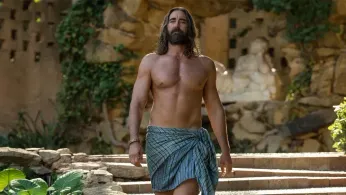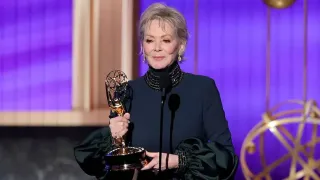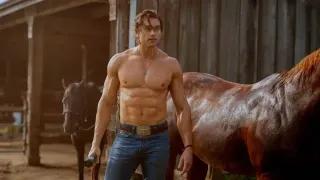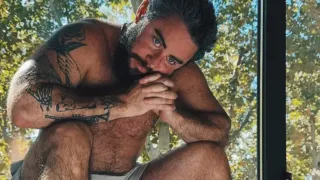
3 hours ago
Lee Pace’s Muscular Transformation for "Foundation" Inspires Fans Worldwide
READ TIME: 3 MIN.
When Apple TV+ debuted "Foundation," its sweeping adaptation of Isaac Asimov’s classic novels, viewers were immediately drawn to the mesmerizing portrayal of Brother Day, the galaxy’s enigmatic emperor, played by openly queer actor Lee Pace. Beyond the intricate politics and cosmic drama, Pace’s visible transformation—growing more muscular, confident, and physically commanding across three seasons—has sparked conversations about body image, queer wellness, and the power of representation in genre television .
Pace’s journey to embody Brother Day began before filming even started. “We started shooting before the pandemic and I was lifting a whole lot of weights,” Pace shared in an interview with ABC Audio. As production shifted due to quarantine, his routine adapted, finding space in a barn for daily yoga sessions that lasted up to two hours. “It was such an opportunity to think about my health, to think about this character… thinking about your balance, what you’re stretching, and how you can control it,” he recounted. The process became a holistic exploration of strength, control, and vulnerability—both for the role and his own sense of self .
Much of Pace’s physical transformation is credited to his long-time trainer, Ian Benson, whose guidance spanned continents as filming moved from Ireland to Malta, the Canary Islands, and Prague. “Ian has worked with me on every season’s Cleon,” Pace explained, referencing his character’s multiple cloned incarnations. Benson tailored workouts to each season’s needs, pushing Pace’s body to embody the shifting dynamics and personalities of Brother Day. “My body doesn’t naturally look like it did in season two. I would say it naturally looks a little bit more like it does in season three,” Pace admitted, highlighting the intentionality behind each transformation .
Pace’s physical evolution has not gone unnoticed, especially in LGBTQ+ circles. Viral moments—such as the widely shared video of Pace walking shirtless through the Canary Islands—quickly captured the imaginations of queer fans worldwide. Social media platforms, particularly Gay Twitter, lit up with praise not only for his physique but for the effortless confidence he exuded. “It was a very relaxed time in my life,” Pace recalled. “We were living in the Canary Islands, and I was working out every day for about two and a half hours, but like I said, in a very relaxed way.” The actor’s approach to fitness and self-care—emphasizing balance, mindfulness, and enjoyment—resonates with LGBTQ+ audiences who often grapple with societal pressures around body image .
As an out actor, Pace’s visible journey has broader implications. In a media landscape where queer bodies are frequently marginalized or stereotyped, his portrayal of a powerful, muscular leader challenges expectations and expands the possibilities for LGBTQ+ representation. The discussion around Pace’s transformation is not just about aesthetics—it’s about visibility, authenticity, and the celebration of diverse queer bodies in mainstream entertainment .
What sets Lee Pace apart is his holistic philosophy of wellness. In interviews, he’s described his process as “a mix of intense training and mindful relaxation,” always returning to the importance of self-care. “You put out a lot of energy and you’ve got to take it back,” he reflected, drawing parallels between marathon training and his current regimen. Pace’s love of naps, simple home-cooked meals, and swimming in whatever city he finds himself filming in, all contribute to a grounded, low-maintenance approach to health.
For LGBTQ+ viewers—many of whom have struggled with body shame or exclusion from mainstream fitness culture—Pace’s example is refreshing. His “relaxed body confidence” offers an alternative to the relentless pursuit of perfection, instead affirming that strength, beauty, and self-worth can coexist with ease and joy .
The cultural impact of Pace’s transformation extends into conversations about masculinity, queer identity, and the politics of visibility. By embodying a character who is both physically powerful and emotionally complex, Pace invites audiences to interrogate traditional notions of strength and control. In Season 3, his portrayal takes on new dimensions—inspired, according to Pace, by a “Big Lebowski-like transformation” that sees Brother Day embracing pleasure and detachment in the face of imperial decline. “He just wants to be lazy, fat, and happy,” Pace joked in a recent interview, highlighting the freedom found in letting go of rigid expectations .






